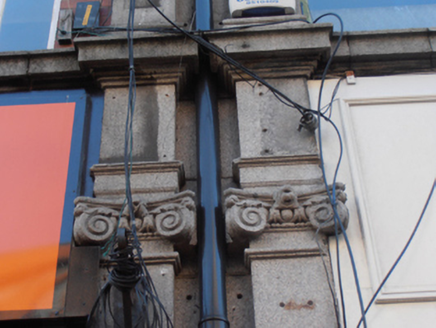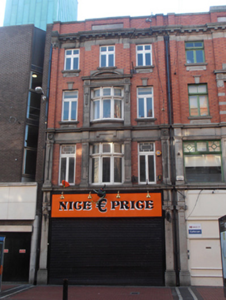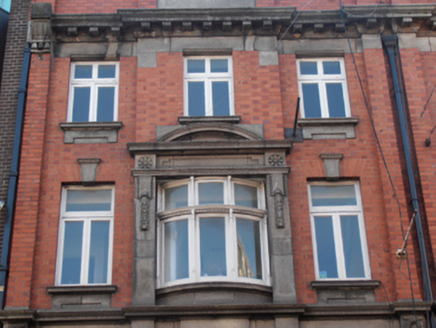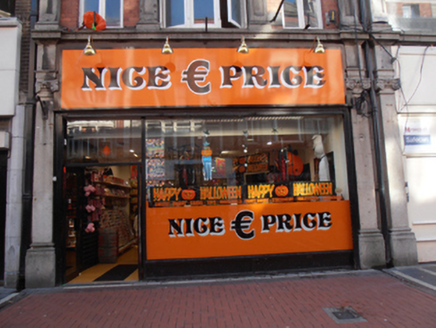Survey Data
Reg No
50010258
Rating
Regional
Categories of Special Interest
Architectural, Artistic
Original Use
Shop/retail outlet
In Use As
Shop/retail outlet
Date
1915 - 1920
Coordinates
315959, 234674
Date Recorded
30/10/2011
Date Updated
--/--/--
Description
Terraced three-bay four-storey retail premises, built 1917-19. Single-bay central breakfront with giant order engaged pilasters to east and west. Flat-roof concealed behind parapet with squared granite coping and blank granite panel, shared cast-iron downpipes to west. Red brick walling laid down in Flemish bond with granite dressings. Granite modillion cornice to eaves level. Square-headed window openings to third floor having granite string course forming continuous lintel and corniced sills with apron panels. Gauged brick flat-arched window openings to second floor with granite keystones. Central bays to first and second floors within moulded granite surround having flat-topped entablature with moulded stone archivolt, holding bowed tripartite timber casement windows. Timber casement windows with overlights throughout, first floor openings having decorative timber overlights. Recent shopfront flanked by granite engaged Ionic pilasters. Fronts onto pedestrianized street.
Appraisal
Named after the Earl of Drogheda, Viscount Henry Moore, North Earl Street was badly damaged in the fighting of the Easter Rising in 1916. Much of the local building fabric was rebuilt in the classical style in the years 1917-19 under the the Dublin Reconstruction Act, 1916. Number 3 retains most of its form and fabric dating from this period. The front elevation in red brick and granite contains a heavy modillion cornice which is a motif that is repeated frequently along the street. The double-height central window is another element that finds echoes along North Earl Street and contributes greatly to a consistent and yet varied streetscape.







